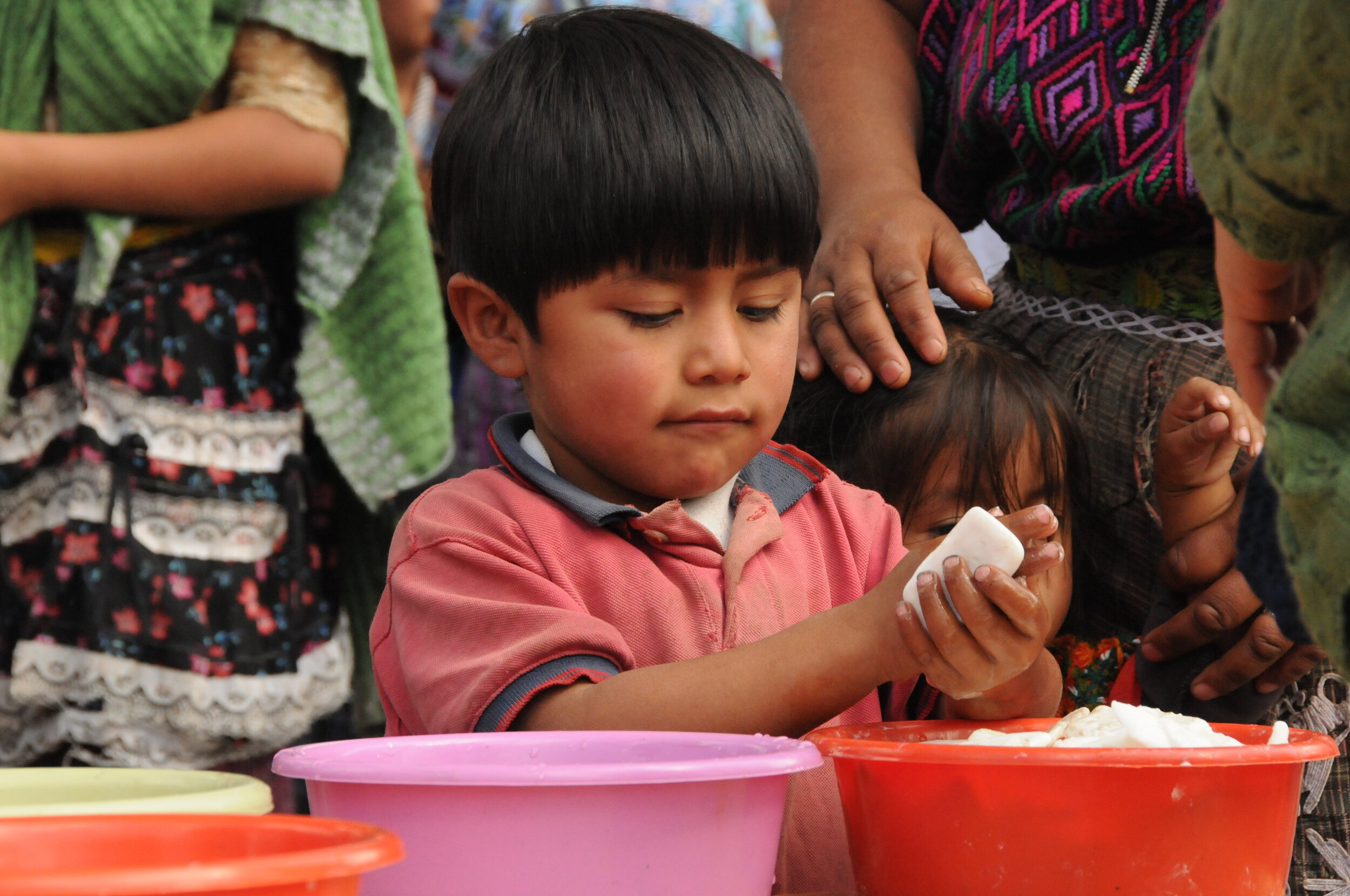Hygiene
Hygiene has been barely prioritized on the international development agenda until recently despite the fact that hygienic behavior such as hand washing with soap could save one million lives each year.
Hygiene is defined as conditions or practices conducive to maintaining health and preventing disease. Many communities in poorer countries face substantial challenges in achieving high levels of hygiene that include poverty, lack of knowledge, behavioral issues, lack of community participation, and lack of political commitment. Our investment into improved hygiene falls into two main categories: hand hygiene and menstrual hygiene.
Hand Hygiene
Hand washing with soap at critical moments, such as after visiting a toilet, before cooking, and after helping a child defecate, can prevent infectious diseases by interrupting the transmission of infectious agents. Evidence suggests that hand washing with soap reduces the risk of diarrhea, acute lower respiratory infections and soil-transmitted helminths.
To reduce these challenges, we emphasize the importance of hygienic behavior throughout all of our programmatic activity. For example, primary school-age students are re-educated in the proper technique of hand-washing every new school term while hand washing stations with access to clean water and soap have been placed in schools and markets. In clinical settings, patients are shown by example the difference cleanliness makes in the treatment of wounds and other skin conditions. Not only is public health education one of our foundational principles, we also advocate for political commitment to the basic practice of hygiene with the local and national governments with whom we parter.
Biodegradable, locally-sourced, high-quality
soap.
In 2017 we hosted a free soap-making seminar in rural Uganda for anyone interested in learning how to make biodegradable, high-quality soap with local materials. Since then, we’ve continued to be a soap-resource in the area for markets, schools, offices, and households.
Menstrual Hygiene
Another aspect of personal hygiene that greatly affects women and adolescent girls is menstrual hygiene. This is special care that is needed during the time of the month when women and girls experience their menstruation. The tools necessary to practice good sanitation and hygiene are inaccessible to many women with limited income who are forced to prioritize food, clothes, and other immediate needs. For many girls, the inaccessibility of these tools force them miss substantial time at school or drop out entirely.
We provide basic menstrual items like reusable sanitary pads and soap to girls in school thereby allowing her to stay in school without disruption due to her monthly cycle. This bag of personal items is given along with a basic biology lesson regarding the female body, allowing us to touch on subjects such as sex education, early pregnancy, peer pressure, dignity and other methods of self care.








